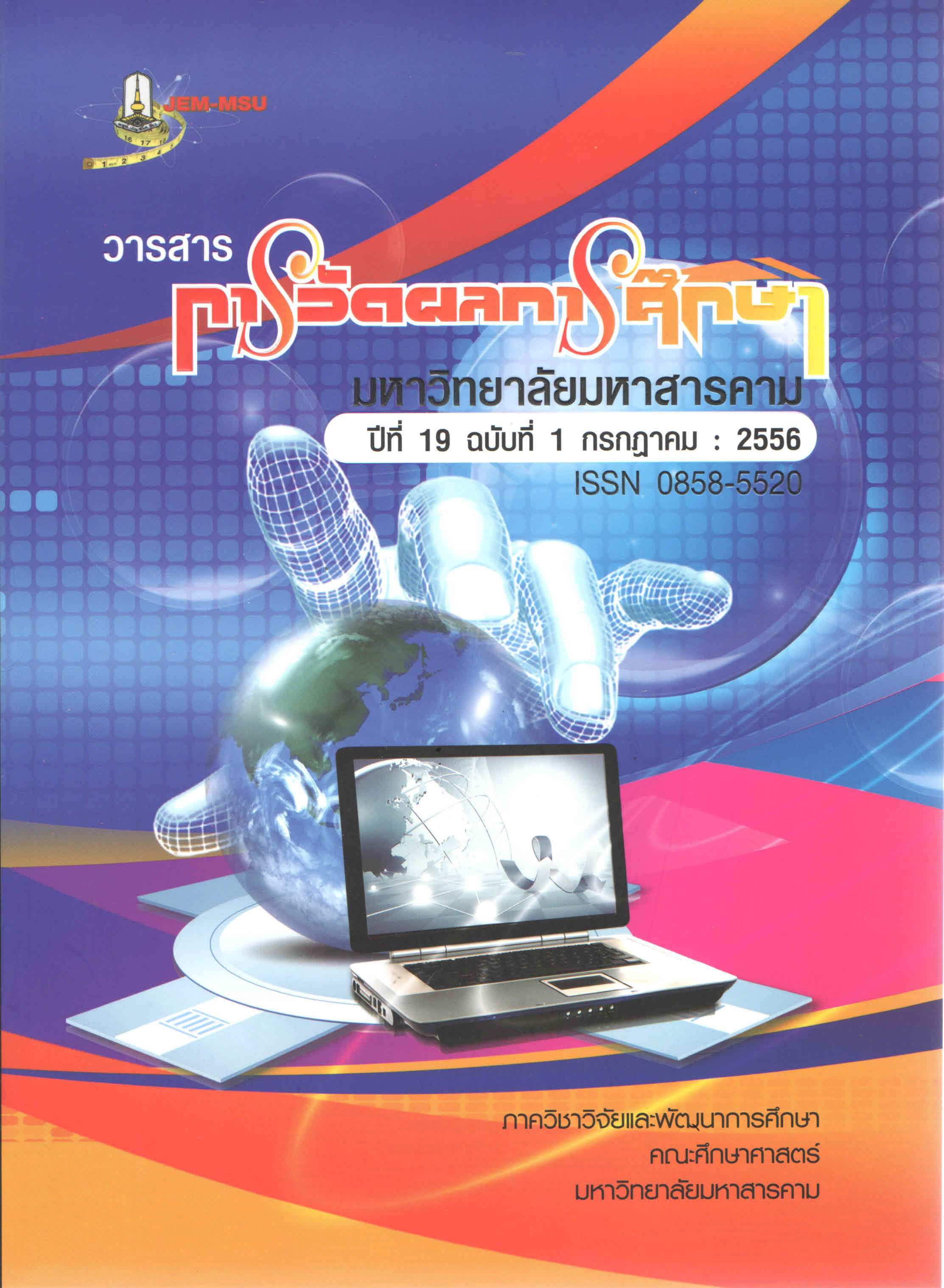Comparisons of Learning Achievement the Application subject Critical thinking Abilities and Satisfaction with Learning Mathematics Using Problem – Based Learning and Learning the Conventional Teaching Approach
Main Article Content
Abstract
The purposes of this study were to develop the lesson plans using problem – based
learning approach to find out the effectiveness at 70/70 and to investigate an effective index
value. Moreover, the comparison of learning achievement, critical thinking ability, and the
satisfactions of Prathom 6 students between learning mathematic using problem-based learning
approach (PBL) and conventional approach were the purposes of this study. The target group was
60 Prathom 6 students who studied in the second semester of 2011 academic year at
Anubannongsang School, Nongsang district, Udon Thani Province. The sample group was selected
from 2 classes by using the purposive sampling and then drew the luck to select the control
group. The first 30 students were taught with the problem-based learning approach and the
control group was taught by using the conventional approach. The instruments of the study were
1) the problem-based learning lesson plans consisting of 10 lesson plans and 21 hours. 2) 30 items
of the 4 multiple choices of learning achievement test with difficulty values ranged between 0.23
and 0.79 discrimination values ranging between 0.21 and 0.72 and a total reliability of 0.86 3)
25 items of 4 multiple choices of critical thinking test with difficulty values ranged between 0.32
and 0.77, discrimination values ranged between 0.23 and 0.64, and a total reliability value of 0.87
4) 25 items of rating scale of mathematics learning satisfaction questionnaire . Statistics applied in
this study were mean, percentile, and standard deviation. Hypotheses were tested by Hotelling’s
T2 and t – test (dependent Samples).
The findings were as follows: 1) The effectiveness of problem-based learning lesson plan
was 84.06/79.43 which was higher than the required criteria. 2) The effectiveness index value was
of problem-based learning lesson plan was 0.7109. 3) The students who were taught by using
the problem-based learning Critical thinking abilities satisfaction scores higher than the
students who were taught by using the conventional approach had at the significance of 0.01. In
conclusion, mathematic teachers could effectively use the learning technique by using the
problem-based learning approach in mathematic class and as well as to use as a guideline for the
development of learning and teaching of the students in the future.
Article Details
The content and information contained in the published article in the Journal of Educational Measurement Mahasarakham University represent the opinions and responsibilities of the authors directly. The editorial board of the journal is not necessarily in agreement with or responsible for any of the content.
The articles, data, content, images, etc. that have been published in the Journal of Educational Measurement Mahasarakham University are copyrighted by the journal. If any individual or organization wishes to reproduce or perform any actions involving the entirety or any part of the content, they must obtain written permission from the Journal of Educational Measurement Mahasarakham University.


